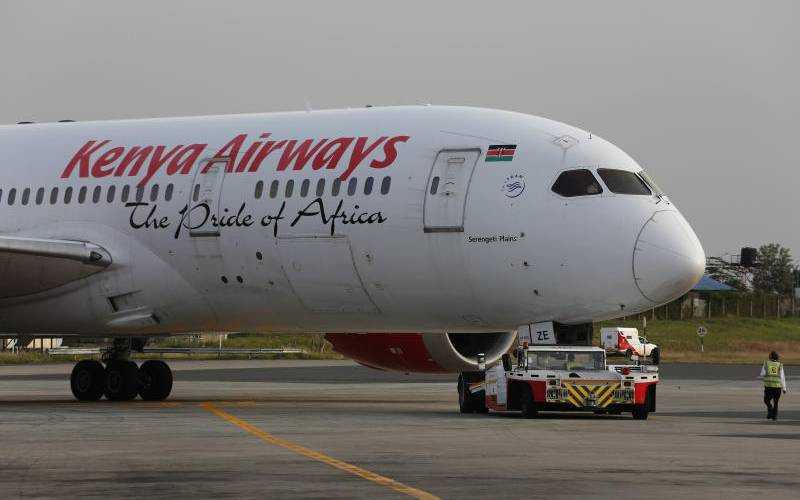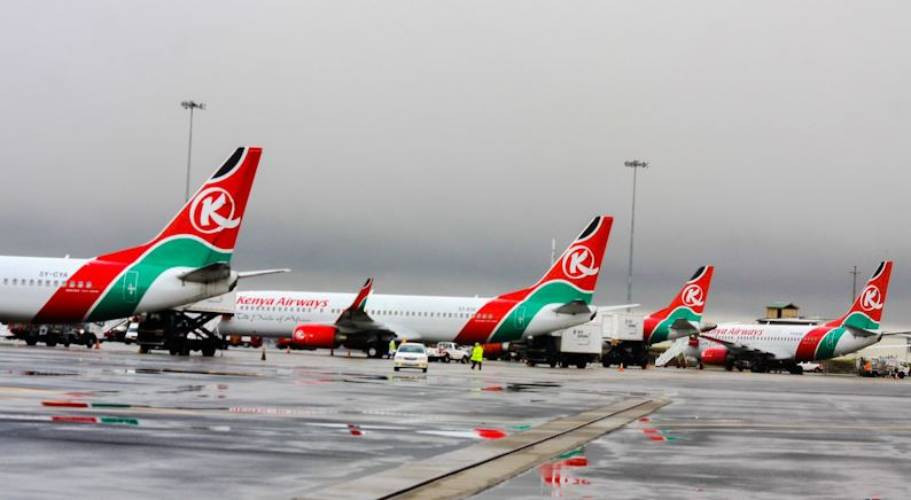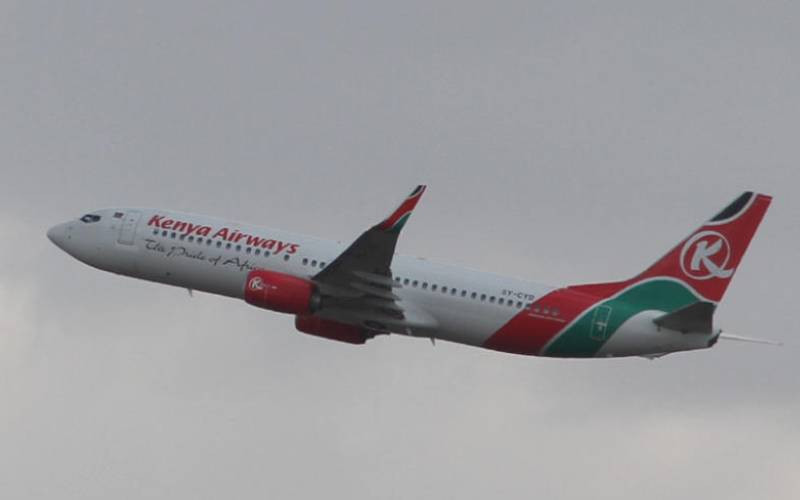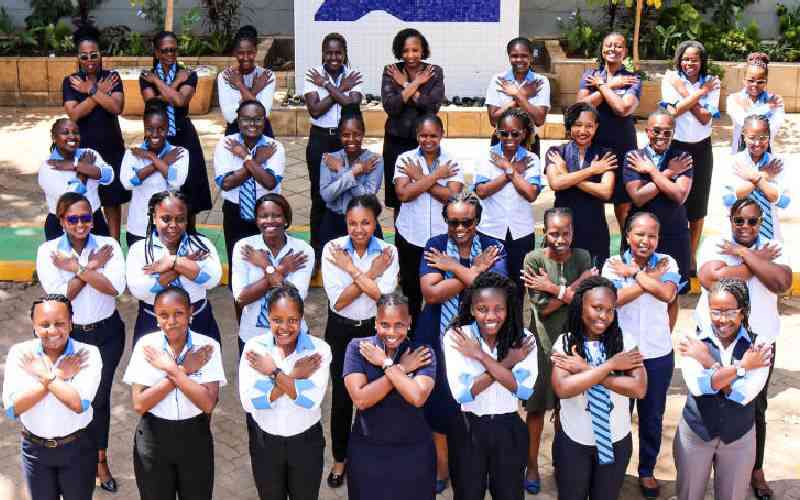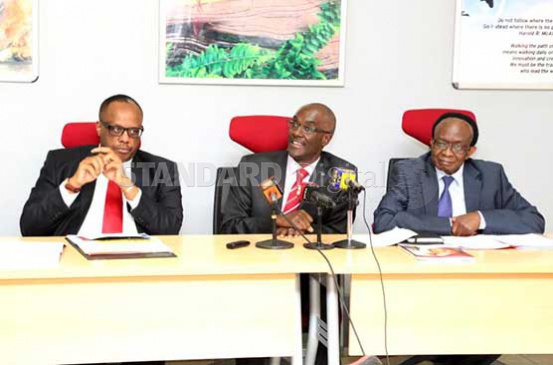
NAIROBI: Hostile minority shareholders took on directors of troubled Kenya Airways in a stormy annual general meeting held yesterday as the top managers struggled to respond to bitter sentiments raised about the airline’s losses.
All but one of the ordinary shareholders who spoke had unkind words for the company’s management and directors whom they accused of running down the airline. “I woke up at 5am from my home in Nanyuki, Laikipia County to come and bury this company I loved so much,” David Mwangi, one of the minority shareholders who spoke, said bitterly.
His sentiments perfectly captured the mood at the AGM, which was held at the company’s training school in Embakasi – a venue that may have been chosen because it would not attract any rental costs as the airline struggles with limited resources and cash.
Last year, the airline held its annual meeting in an auditorium at the Bomas of Kenya. Christopher Kariu said he only came to the meeting to express his bitterness and disappointment with the board and management, while Catherine Nyamai told the managers that she was a frequent flier who grudgingly flew cheaper airlines even though she was a proud shareholder of KQ.
The shareholders, most of whom have little comprehension of technical financial language such as hedging – which is partly responsible for the massive losses reported in the last financial year, would have none of the explanation given by the top managers including chief executive Mbuvi Ngunze and his principal deputy Alex Mbugua – the finance director.
Questions came in fast but each was similar to the ones asked by the subsequent shareholder as the raw feelings of disappointment played out. In the end, it was clear to them that no dividend would be forthcoming this year, and perhaps in the near future, with the managers conceding that the airline was technically insolvent but every effort was being directed to return the business back to profitability.
“We can’t die before we are killed,” Mr Nguze said, adding that the airline was actually flying more than 24,000 passengers every day. “Operationally, we are very viable.” He would go on to answer the same question over and over again, only drafted a little differently by other shareholders.
Among the reasons he and Mbugua gave to the unrelenting shareholders was that four Dreamliners had been delivered in the last financial year alone but the commitments were made many years before. As a result of the fleet expansion, aircraft ownership costs had nearly doubled to Sh25 billion in the financial year ended March 2015 to contribute to the record loss.
A decision had been reached as far back as 2005 to phase out the 767 model and replace them with the Dreamliners – which have more capacity but have a much better fuel efficiency. “Let us hope that there would not be as much hostility (from the minority shareholders) come next meeting,” National Treasury Permanent Secretary Kamau Thugge said in off-the-cuff chat with another disgruntled shareholder.
Mr Thugge is also a director of KQ, representing his ministry which holds a near 30 per cent stake on behalf of the State. The PS also clarified that the State would not be bailing out the airline in the entire Sh60 billion it requires to repair its tattered finances.
Already, the State has extended about Sh4.2 billion to the airline as emergency loan to enhance operating cash flows and guaranteed another $200 billion medium term credit facility from the Afro Exim Bank. Low demand for wide body aircraft among the global airlines have placed a fresh hurdle in the airline’s plan to dispose of its idle four 777-200ER model jets, in a sale that was anticipated to inject the badly needed cash to the business.
Ngunze said the market for the wide body planes was ‘soft’ at the moment, but was optimistic that a buyer will soon be found after an international jet dealer was contracted to execute the disposal. Board chairman Evanson Mwaniki retired during the AGM after serving for the maximum term of 10 years. Jason Kapkirwok was elected unopposed to join the board to fill in the vacancy left by Mwaniki. Dennis Awori was also re-elected as he was one of the only two candidates against the two vacancies.
PRICING CHALLENGE
Nguze said the focus at the moment was stabilising the financial position of the airline. “Our primary focus over the next three to six months is to ensure the financial survival of the airline into the long-term,” he said.
Stay informed. Subscribe to our newsletter
He said the airline has already drawn down half of a $200 million bridging loan from Afreximbank and expects the next tranche in two weeks. “We will draw the second tranche over the next few weeks,” disclosed Ngunze. He told reporters the financing will allow the carrier to get on a firmer financial footing.
He added the turnaround plan would be implemented over the next 12-18 months once the right financing structure was in place.The airline is looking at a combination of long-term debt and shareholder equity to finance its operations over the long-term.
The airline is in the process of selling some of its aircraft to trim costs and reduce excess capacity.
On pricing, Ngunze said KQ was working with international advisory firm Seabury to review the airline’s pricing structure. “Based on the work we undertook with them (Seabury), we clearly saw a need to revisit our revenue management strategies to better align with international practices. We will remain active in ensuring that our pricing strategy remains competitive in an ever changing market place,” he said.
 The Standard Group Plc is a
multi-media organization with investments in media platforms spanning newspaper
print operations, television, radio broadcasting, digital and online services. The
Standard Group is recognized as a leading multi-media house in Kenya with a key
influence in matters of national and international interest.
The Standard Group Plc is a
multi-media organization with investments in media platforms spanning newspaper
print operations, television, radio broadcasting, digital and online services. The
Standard Group is recognized as a leading multi-media house in Kenya with a key
influence in matters of national and international interest.
 The Standard Group Plc is a
multi-media organization with investments in media platforms spanning newspaper
print operations, television, radio broadcasting, digital and online services. The
Standard Group is recognized as a leading multi-media house in Kenya with a key
influence in matters of national and international interest.
The Standard Group Plc is a
multi-media organization with investments in media platforms spanning newspaper
print operations, television, radio broadcasting, digital and online services. The
Standard Group is recognized as a leading multi-media house in Kenya with a key
influence in matters of national and international interest.


